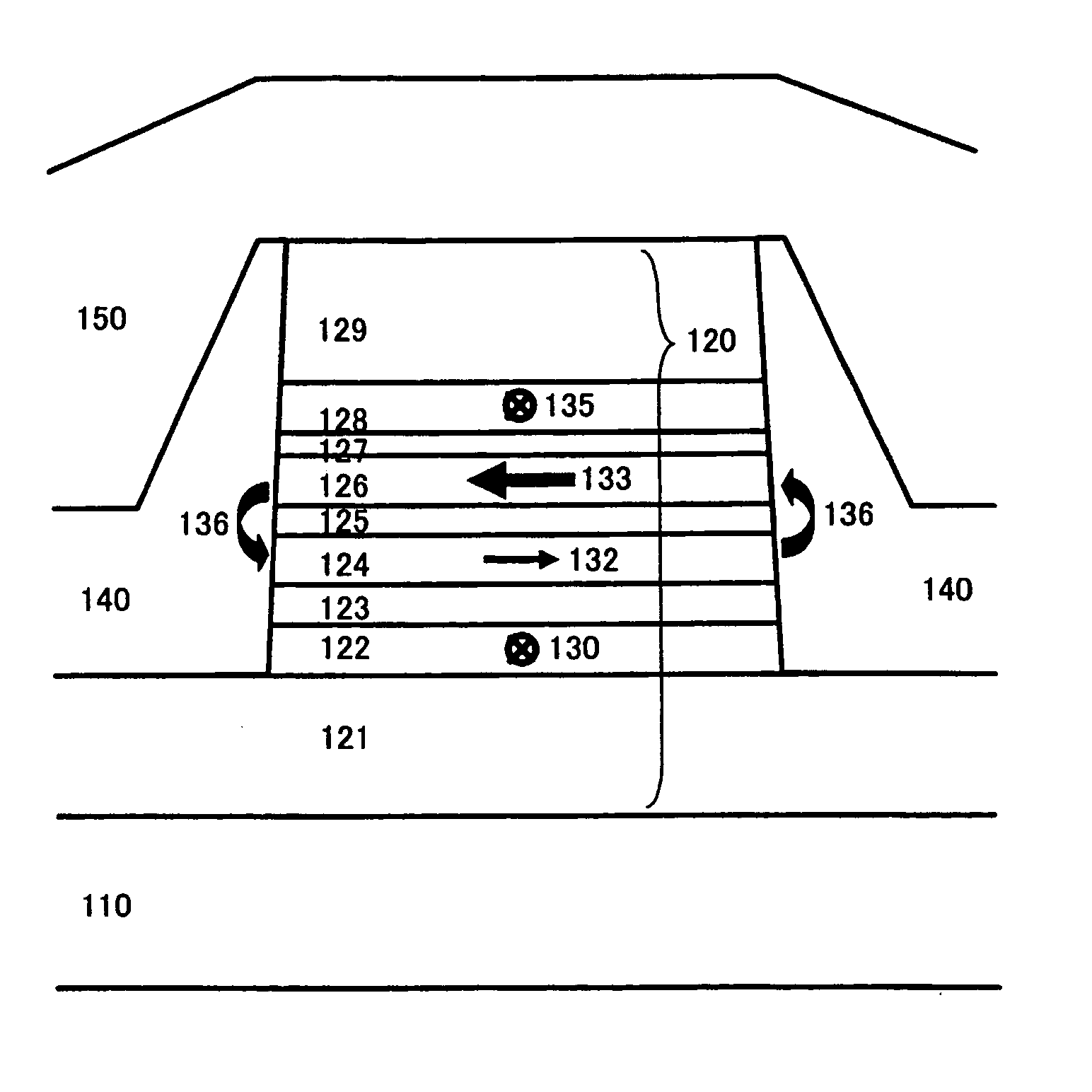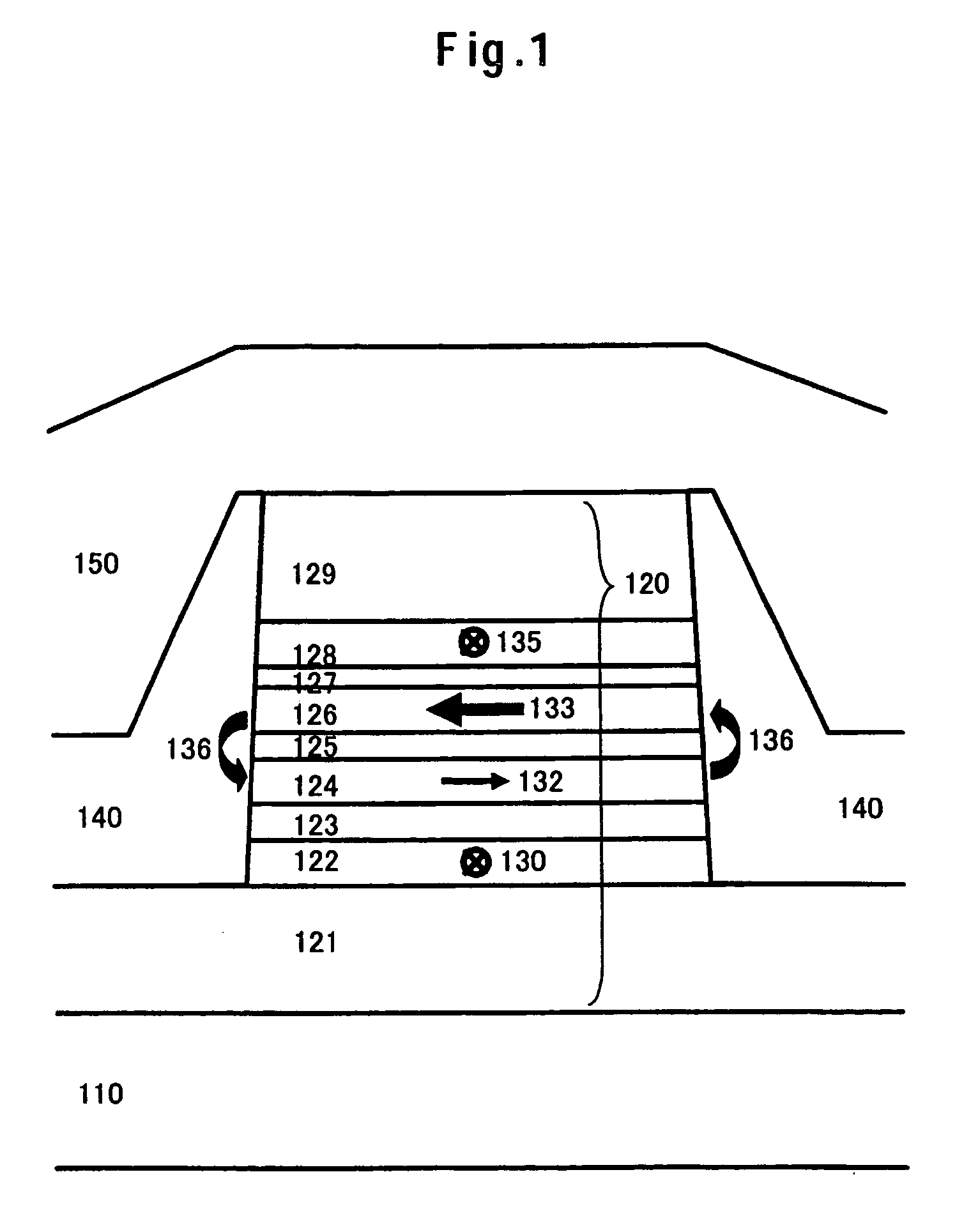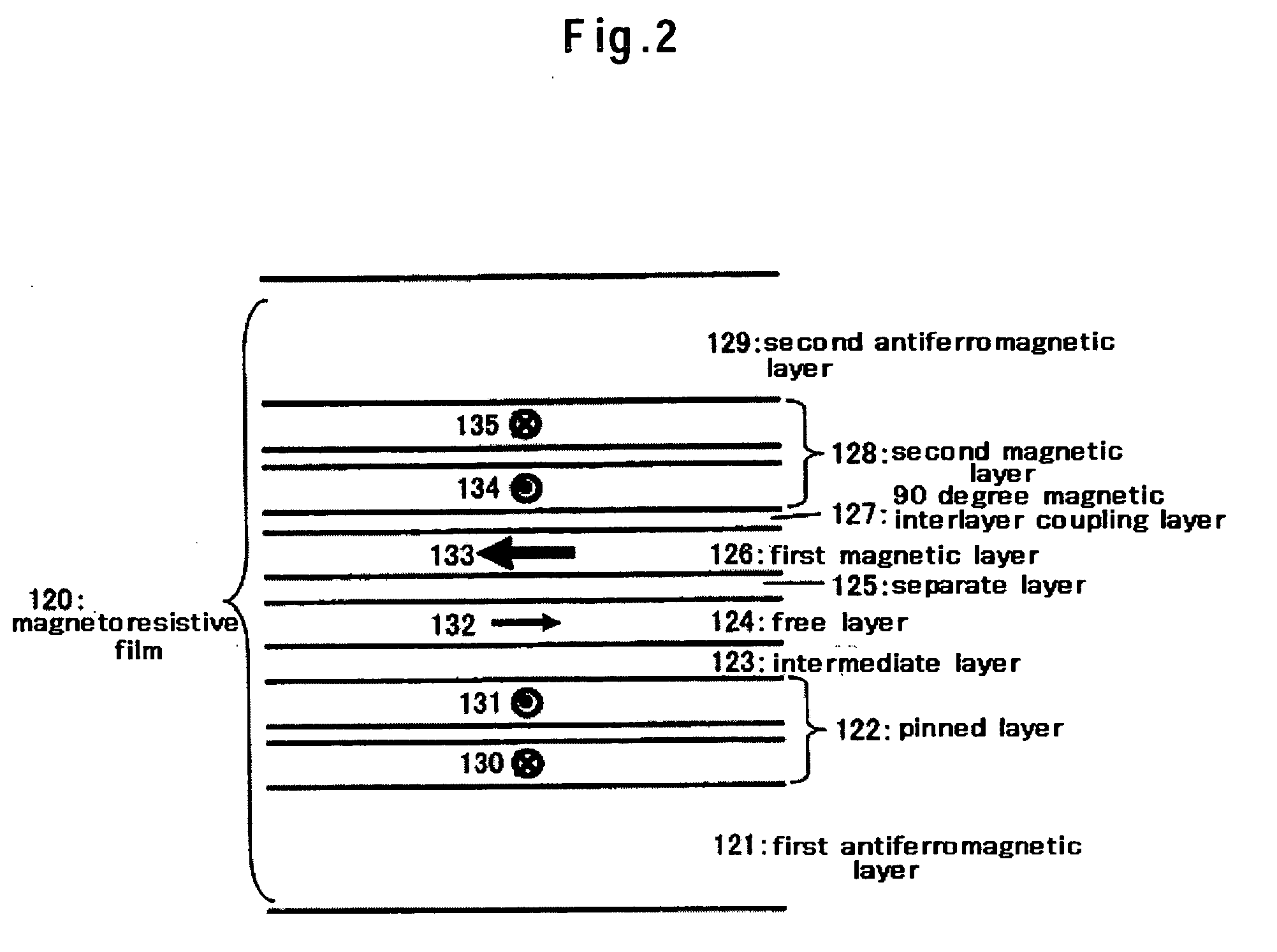Magnetoresistive head using longitudinal biasing method with 90-degree magnetic interlayer coupling and manufacturing method thereof
a technology of longitudinal biasing and magnetic interlayer coupling, applied in the field of magnetoresistive heads, can solve the problems of reducing output, difficult control of the magnetization direction of the layer applying a longitudinal biasing field to the pinned layer and the free layer, and reducing the effect easy control of the free layer, and the effect of reducing the influence of the demagnetizing field in the free layer at the track edges
- Summary
- Abstract
- Description
- Claims
- Application Information
AI Technical Summary
Benefits of technology
Problems solved by technology
Method used
Image
Examples
embodiment 1
[0038]FIG. 1 is a schematic diagram illustrating an example of a magnetoresistive head of the embodiment 1 of the present invention as seen from the air bearing surface. The structure together with an outline of the fabricating procedure of a magnetoresistive head will be described below.
[0039] A magnetoresistive film 120 is deposited on the substrate (not shown in the figure) after forming a lower shield 110, and the track width direction is patterned into a desired shape by using photolithography, ion milling, or reactive ion etching. Next, an insulator layer 140 is formed at both ends of the magnetoresistive film 120 using a lift-off method. Similarly, in the direction along the sensor height, the magnetoresistive film 120 is patterned into a desired shape by using photolithography, ion milling, or reactive ion etching, and the insulator layer is formed using a lift-off method. The order of patterning the magnetoresistive film 120 may also be exchanged between the track width di...
embodiment 2
[0064]FIG. 9 is a schematic diagram illustrating an example of a magnetoresistive film 220 of the embodiment 2 of the present invention as seen from the air bearing surface. It is a magnetoresistive head in which the magnetoresistive film 120 of the embodiment 1 of the present invention is only substituted by the magnetoresistive film 220, so that the detailed head configuration is omitted. In this embodiment, it has a structure in which the second antiferromagnetic layer 129 is removed from a part of the system of the embodiment 1 for applying a longitudinal biasing field: separate layer 125 / first ferromagnetic layer 126 / 90-degree magnetic interlayer coupling layer 127 / second ferromagnetic layer 128 / second antiferromagnetic layer 129. That is, the second ferromagnetic layer 128 has a so-called “self-pinned” structure consisting of ferromagnetic layer 1 / antiferromagnetic coupling layer / ferromagnetic layer 2, thereby fixing the magnetization direction of the second ferromagnetic laye...
embodiment 3
[0069]FIG. 10 is a schematic diagram illustrating an example of a magnetoresistive film 320 of the embodiment 3 of the present invention as seen from the air bearing surface. It is a magnetoresistive head in which the magnetoresistive film 120 of the first embodiment of the present invention is only substituted by the magnetoresistive film 320, so that the detailed head configuration is omitted. This embodiment has a structure in which the second antiferromagnetic layer 129 is removed from a part of the system of applying a longitudinal biasing field of the first embodiment: separate layer 125 / first ferromagnetic layer 126 / 90-degree magnetic interlayer coupling layer 127 / second ferromagnetic layer 128 / second antiferromagnetic layer 129, and in which the second ferromagnetic layer 128 consists of a hard magnetic material and the magnetic direction of the second ferromagnetic layer 128 is fixed in the direction along the sensor height. A material selected from Co—Pt and one in which C...
PUM
 Login to View More
Login to View More Abstract
Description
Claims
Application Information
 Login to View More
Login to View More - R&D
- Intellectual Property
- Life Sciences
- Materials
- Tech Scout
- Unparalleled Data Quality
- Higher Quality Content
- 60% Fewer Hallucinations
Browse by: Latest US Patents, China's latest patents, Technical Efficacy Thesaurus, Application Domain, Technology Topic, Popular Technical Reports.
© 2025 PatSnap. All rights reserved.Legal|Privacy policy|Modern Slavery Act Transparency Statement|Sitemap|About US| Contact US: help@patsnap.com



